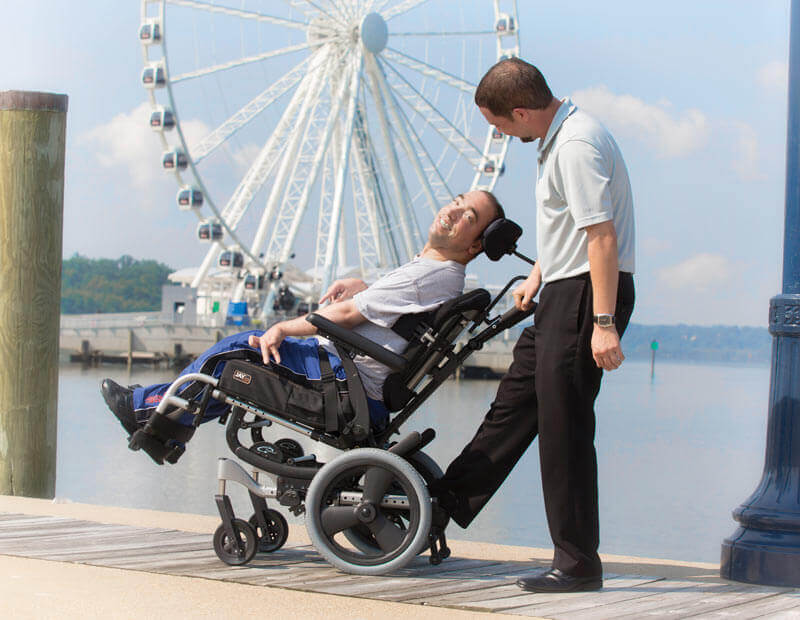You may not believe it, but about 19% of the American population has a disability. Taking on the role of caregiver to a loved one with a disability is a kind, though challenging, pursuit. It can be difficult to know where to start, let alone how to get help along the way. Here are six tips for keeping the loved one you are for happy and healthy.
Help them maintain an active lifestyle.
Not only can regular exercise strengthen your loved one's heart, create strong bones & muscles, and improve coordination, it can also be a great stress reliever and mood elevator. Consult a doctor about appropriate types and amounts of physical activity for your loved one. And remember: a healthy lifestyle is equally important for you as a caregiver, so be sure to engage in regular exercise and eat a nutritious diet.
Encourage friendships and other close social relationships.

Loneliness can be a major problem for people with disabilities, so take trips to the neighborhood park and provide opportunities for your loved one to socialize with new people and maintain friendships.
Address their mobility.
For people with mobility problems, it's critical to have the right equipment, both for comfort and for getting around. Regularly reassess your loved one's wheelchair and seating equipment to determine if they can benefit from new or additional technology that can provide more accessibility.
Ensure dental hygiene isn't neglected.
It may seem like a minor detail, but small dental problems can amplify if ignored. Like anyone else, those with a disability should brush every day and visit a dentist regularly. Be sure to use a toothbrush with soft bristles and replace it every three months, after a contagious illness, or if the bristles are worn.
Look into part-time employment or volunteer opportunities.
There are federal work programs for those with special needs, and local libraries & schools usually have opportunities. Your relative could even consider working from home as a freelance writer or as a dog boarder or dog walker. Volunteering can be another great way to gain job experience and build skills to add to a résumé. It's also a great opportunity to meet new people and forge friendships.
Don't be afraid to ask for help.
It could be as simple as asking your love one for feedback. If you're raising a child with a disability, branching out within the disability community can help you gain valuable insight from people with experience (it's also good for your child's identity to see their parents hang out with other people with disabilities). It could also mean bringing on additional help, like a night nurse or home healthcare worker. Know your limits and bring on extra support as necessary.
Caring for a loved one with a disability is an honorable but demanding responsibility, so don't forget to take care of yourself in the process. Keep these tips in mind and add a little light to your daily routine!
About the Author
Patrick Young is an educator and activist. He believes people with disabilities live within a unique set of circumstances – the outside world often either underestimates them or ignores their needs altogether. He created Able USA to offer helpful resources to people with disabilities and to provide advice on navigating various aspects of life as a person with disabilities.
Most of the stories here on LiveQuickie.com were submitted by readers. Do you have a story to tell? We'd love to hear it. Submit your story here.